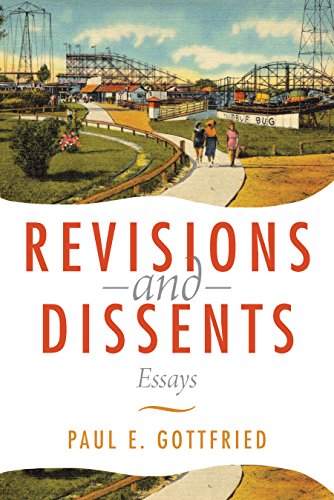Having spent considerable energy over the last 40 years examining the anti-German and, more recently, anti-Russian fixations of neoconservatives, I am now rather selective about which examples I allow myself to investigate.
That said, I can’t resist an easy target. Germanophobia and Russophobia both figure prominently in a recently published commentary by Richard Herzinger in The American Interest. In “Germany’s Russia Lobby,” Herzinger explains that “From Nietzsche to Mann to Merkel, German culture has long had a soft spot for Russia.”
Herzinger’s rant against the Germans and Russians segues into his attacks on Angela Merkel for deciding to buy natural gas from Putin’s Russia. It seems that “Russia acts in German consciousness as a kind of imagined, subliminal ever present ‘option.’” Given Germany’s undemocratic past, which continues to shape its relationship with the rest of the world, this country is drawn to “Russian autocracy.” Trump has intensified this tendency because of his “bewildering admiration and affection for Putin.” This, we are told, encourages German anti-democrats to push even closer to the Russians. Because of these developments, “Germany’s nationalist demons, which most had thought vanquished, could surface once again and become virulent.”
 Revisions and Dissents...
Best Price: $29.00
Buy New $29.00
(as of 03:55 UTC - Details)
Revisions and Dissents...
Best Price: $29.00
Buy New $29.00
(as of 03:55 UTC - Details)
Although Herzinger finds no evidence that Merkel or her likely successor, Annegret Kramp-Karrenbauer, will renounce “her commitment to the Transatlantic alliance and its common values (read subservience to the Washington foreign policy establishment),” he fears that “the Putin lobby will almost certainly increase” in conjunction with the “Putin-explainers” who “depict Putin’s authoritarian rule as an authentic expression of Russian uniqueness.” Herzinger insists that “none of this is new” and from the nineteenth century on, anti-Western, anti-democratic German thinkers “developed a mythical image of, and fascination with, Russia that vacillated between fear and admiration.”
Herzinger cherry-picks statements by German authors that are intended to suggest that they have a morbid attraction to Russian politics and culture. But were the sympathetic observations that Nietzsche made about Russia any more common than his effusions of admiration for the French? And Nietzsche, by the way, was no German nationalist; typically he contrasted other supposedly more creative nations with German Spiessbürger (philistines). One could also come up with a list of anti-Russian quotations by German intellectuals and politicians, particularly during the two World Wars when Germans and Russians were slaughtering each other. Herzinger cites the interwar German nationalists Ernst Niekisch and Moeller van den Bruck as Russophiles. But other German conservatives in the 1920s—for example the philosopher of history Oswald Spengler—were profoundly wary of Soviet Russia. Can Herzinger, by the way, provide us with a single quotation from the horse’s mouth that would suggest that Merkel is a “German nationalist”? What in the career of this politician who flooded her country with young male migrants, supposedly from Syria, would indicate that she’s a German patriot?




